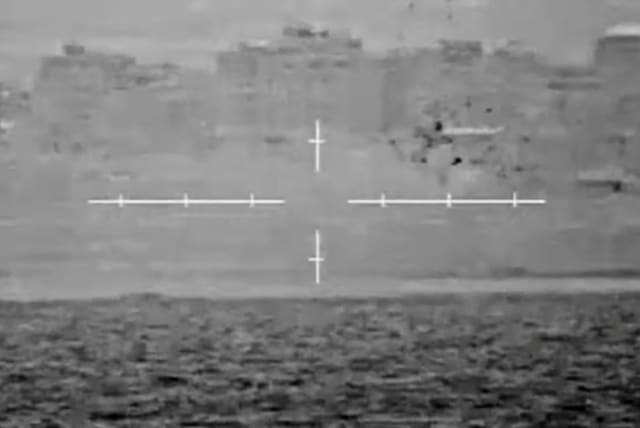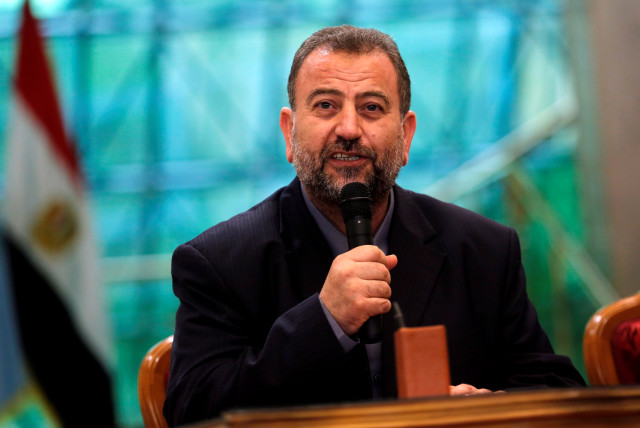Israel-Hamas War: Who is next on Israel’s hit list?

The new year started with an alleged Israeli airstrike on the Beirut suburb Dahieh, resulting in the assassination of Hamas deputy leader Saleh al-Arouri
Since the beginning of the current Israel-Hamas war, on October 7, Israel has aimed to eliminate senior Hamas officials, regardless of their location, as part of its campaign to destroy the group’s military capabilities.
The Israeli military and security agencies have targeted Hamas leaders since the armed Palestinian group began attacks on Israeli civilians and military personnel, and particularly in response to Hamas suicide bombings and other attacks that escalated following the signing of the Oslo Accords and intensified during the Second Intifada. The goal was to disrupt the operational capabilities and leadership structure of Hamas and deter further attacks.
Yahya Ayyash, often referred to as “The Engineer” due to his expertise in bomb-making, was a prominent figure in Hamas and a key target for Israeli security forces in the mid-1990s. Ayyash was responsible for designing explosive devices used in a series of deadly attacks against Israeli targets. Israel’s pursuit of Ayyash culminated in January 1996, when he was assassinated in a targeted operation.
Another high-profile action was the January 2010 killing of Mahmoud Al-Mabhouh, a senior Hamas military commander, in Dubai. The operation was widely attributed to the Mossad, Israel’s foreign intelligence agency, though Israel never officially confirmed its involvement. Al-Mabhouh was a founding member of the Izz ad-Din al-Qassam Brigades, the military wing of Hamas, and was believed to be involved in arms smuggling and coordinating attacks against Israel. The assassination, carried out in a Dubai hotel room, drew significant international attention due to its complexity and the use of forged passports, leading to a diplomatic fallout and increased scrutiny of Israel’s covert operations abroad.
On January 2, 2024, Saleh al-Arouri, the deputy leader of Hamas, was assassinated in a presumed Israeli strike in Lebanon, marking the most prominent targeted killing of a Hamas leader since the beginning of the war on October 7. Arouri, a key figure in Hamas’ 2023 attack on Israel and responsible for expanding Hamas’ activities in the West Bank, was killed alongside six others, including high-ranking Hamas operatives. This attack, in the Dahieh neighborhood, a predominantly Shia Muslim suburb south of Beirut, took place in the context of broader regional tensions, including the escalation of violence between Israel and Hezbollah, the powerful Iranian proxy group in Lebanon.
The question on many minds now: Who’s next in the crosshairs?
Despite the advance of Israeli military forces into Gaza, Yahya Sinwar, Hamas’ chief in the Gaza Strip, remains unlocated and among Israel’s most wanted individuals.
Last year, during a rally in Gaza, Sinwar delivered a speech in which he explicitly said Hamas would launch rockets into Israel, signaling a powerful strike. He declared, “We will come to you with an endless number of rockets. We will come to you in a flood of soldiers without limits.”
Sinwar, ascended to power as the leader of Hamas after serving 22 years in Israeli prisons for the abduction and killing of two Israeli soldiers and four Palestinians. He was released from prison in 2011 as part of the deal to free Israeli soldier Gilad Shalit.
He is suspected of being one of the masterminds behind the Oct. 7 terrorist attack. Since then, Israel apparently remains unaware of his whereabouts.
Sinwar’s younger brother Mohammed Sinwar, born in 1975 in the Khan Yunis refugee camp, is a key figure in the Izz ad-Din al-Qassam Brigades in the Gaza Strip. His military involvement began in 1991, and he rose to prominence as the commander of Hamas' Khan Yunis brigade in 2005. Notably, he participated in the abduction of Gilad Shalit in 2006, leading to a significant prisoner exchange in 2011.
Mohammed Sinwar has survived six Israeli assassination attempts, the latest being in May 2021. Contrary to reports of his death in the 2014 Israel-Gaza War, Sinwar was later found to have been hiding in Gaza's tunnel networks. In 2023, Israeli intelligence identified him as one of the masterminds behind the Hamas-led attack on Israel on October 7. As a result, Israel has placed him high on its list of targets in the military operation in Gaza, offering a $300,000 bounty for information on his whereabouts. His close relationship with his brother, Yahya Sinwar, further underscores his influential role in the organization.
Another target for Israel is Khaled Mashal, a former chairman of the Hamas political bureau. On September 25, 1997, Mossad agents, under orders from Prime Minister Benjamin Netanyahu, attempted to assassinate Mashal in Amman, Jordan. The agents used fake Canadian passports and a device delivering a fast-acting poison. After Mashal’s condition worsened, Jordan’s King Hussein demanded the antidote from Israel, threatening diplomatic fallout. US President Bill Clinton intervened, and the antidote was delivered, saving Mashal’s life. The incident led to the arrest and later release of several Mossad agents and release of Palestinian prisoners.
Mashal currently resides in Qatar, where he actively advocates for Palestinian “resistance” against Israeli forces. Since the onset of the current conflict, he has encouraged boycotts and the involvement of neighboring countries in the war against Israel.
A complicating factor is that Qatar has helped mediate the Israel-Hamas conflict by facilitating hostage exchanges for the release of Palestinian prisoners from Israeli jails. Mashal is not the only Hamas leader residing in Qatar; Ismail Haniyeh, also wanted by Israeli authorities, is in Qatar as well.
Haniyeh not only serves as the chairman of the armed group’s political bureau and was previously the Hamas chief in the Gaza Strip but is also the former prime minister of the Palestinian Authority (PA). PA President Mahmoud Abbas removed him from this position in 2007.
Haniyeh recently traveled to Egypt to discuss with officials the provision of humanitarian aid to Gazan residents and the release of Palestinian prisoners from Israeli jails.
Mohammed Deif, born Mohammed al-Masri in 1965 in the Khan Yunis refugee camp in Gaza, is the notorious head of the Izz ad-Din al-Qassam Brigades. Deif, a key figure in Hamas since 1987, orchestrated several high-profile attacks against Israel, including the 1996 Jaffa Road bus bombings. Elevated to lead the Brigades in 2002, he has significantly advanced their military capabilities.
Deif played a pivotal role in the October 2023 Hamas-led attack on Israel, which initiated the current Israel-Hamas war. This attack, part of his “above and below” strategy, combined rocket assaults and tunnel warfare, demonstrating his influence in Hamas’ military tactics.
Surviving seven Israeli assassination attempts since 1995, Deif has been a prime target due to his role in attacks on Israeli soldiers and civilians. His resilience, despite personal losses including family members in a 2014 airstrike, and international designation as a terrorist by the United States and the European Union, have made him a prominent Palestinian “resistance” figure and a likely candidate for future targeted Israeli operations.
Marwan Issa, also born in 1965 in the Gaza Strip, is the deputy commander of the Izz ad-Din al-Qassam Brigades. Known as the "Shadow Man" or Abu Baraa, Issa has been a key figure in Hamas, particularly in planning the 2023 Hamas attack on Israel. He was detained by Israel during the First Intifada and later by the Palestinian Authority but was released after the outbreak of the Second Intifada.
Issa became the head of the Qassam Brigades in central Gaza's refugee camps and has been targeted, but survived, Israeli assassination attempts, notably in 2006. Rarely seen in public until 2011, he was part of the negotiating team for the Gilad Shalit prisoner exchange. His home was bombed in 2014 and 2021.
As Mohammed Deif's right-hand man and a key member of Hamas' secretive military council, Issa is one of Israel's most wanted armed fighters. The US designated him as a terrorist in 2019, and the European Union followed suit in 2023, linking him directly to the 2023 attack on Israel.
Israel now faces the challenge of potentially targeting Hamas officials in other Middle Eastern countries without causing political tensions with neighboring Arab nations.
And following the assassination of Arouri, Israel may face a backlash from Hezbollah’s leader, Hassan Nasrallah, who warned, “If the enemy [Israel] thinks of waging a war on Lebanon, we will fight without restraints, without rules, without limits, and without restrictions. They know what I mean.”
Lana Ikelan is a recent graduate of the Hebrew University of Jerusalem and an intern in The Media Line’s Press and Policy Student Program.
Jerusalem Post Store
`; document.getElementById("linkPremium").innerHTML = cont; var divWithLink = document.getElementById("premium-link"); if (divWithLink !== null && divWithLink !== 'undefined') { divWithLink.style.border = "solid 1px #cb0f3e"; divWithLink.style.textAlign = "center"; divWithLink.style.marginBottom = "15px"; divWithLink.style.marginTop = "15px"; divWithLink.style.width = "100%"; divWithLink.style.backgroundColor = "#122952"; divWithLink.style.color = "#ffffff"; divWithLink.style.lineHeight = "1.5"; } } (function (v, i) { });

